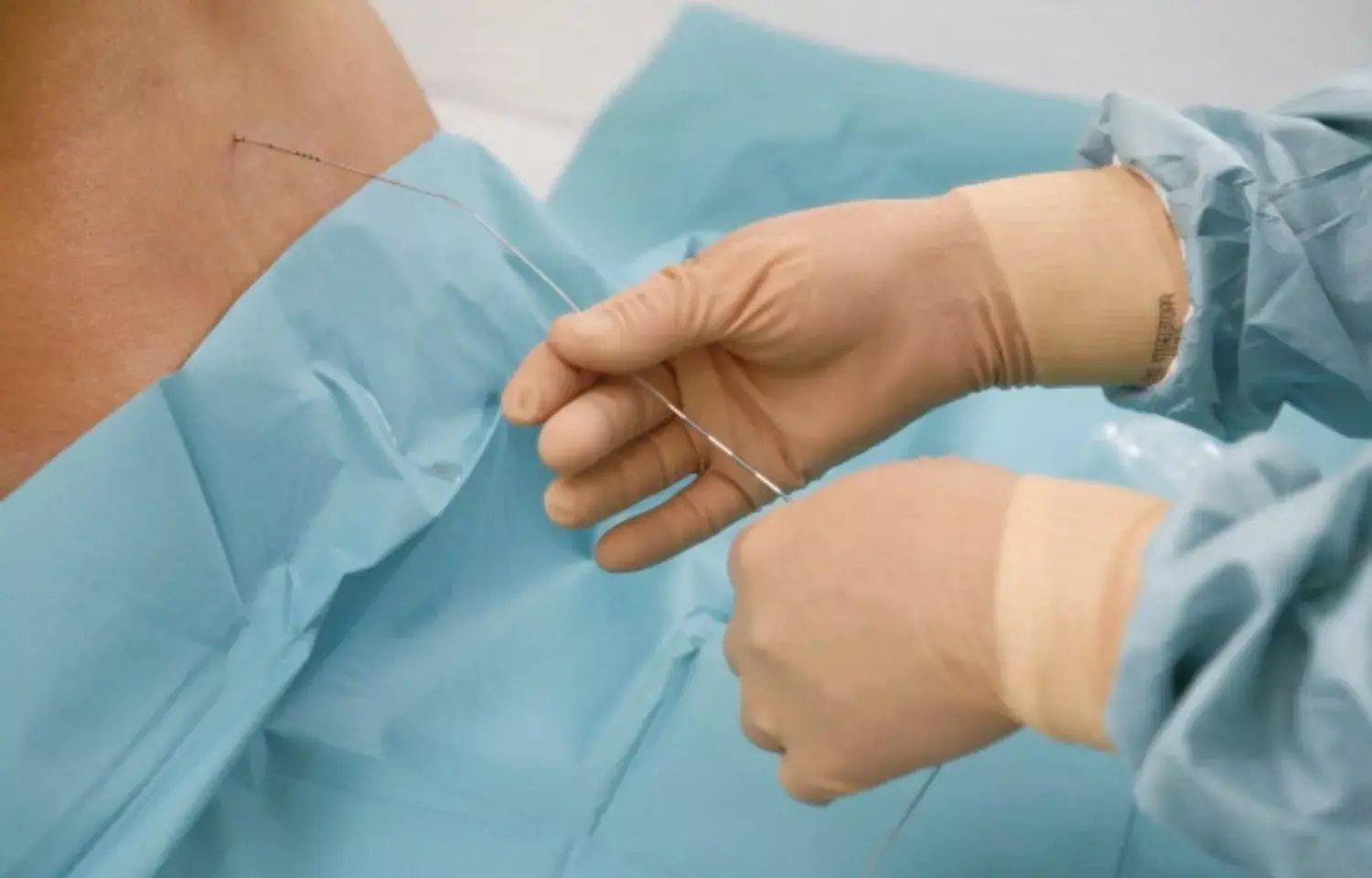- Home
- Medical news & Guidelines
- Anesthesiology
- Cardiology and CTVS
- Critical Care
- Dentistry
- Dermatology
- Diabetes and Endocrinology
- ENT
- Gastroenterology
- Medicine
- Nephrology
- Neurology
- Obstretics-Gynaecology
- Oncology
- Ophthalmology
- Orthopaedics
- Pediatrics-Neonatology
- Psychiatry
- Pulmonology
- Radiology
- Surgery
- Urology
- Laboratory Medicine
- Diet
- Nursing
- Paramedical
- Physiotherapy
- Health news
- Fact Check
- Bone Health Fact Check
- Brain Health Fact Check
- Cancer Related Fact Check
- Child Care Fact Check
- Dental and oral health fact check
- Diabetes and metabolic health fact check
- Diet and Nutrition Fact Check
- Eye and ENT Care Fact Check
- Fitness fact check
- Gut health fact check
- Heart health fact check
- Kidney health fact check
- Medical education fact check
- Men's health fact check
- Respiratory fact check
- Skin and hair care fact check
- Vaccine and Immunization fact check
- Women's health fact check
- AYUSH
- State News
- Andaman and Nicobar Islands
- Andhra Pradesh
- Arunachal Pradesh
- Assam
- Bihar
- Chandigarh
- Chattisgarh
- Dadra and Nagar Haveli
- Daman and Diu
- Delhi
- Goa
- Gujarat
- Haryana
- Himachal Pradesh
- Jammu & Kashmir
- Jharkhand
- Karnataka
- Kerala
- Ladakh
- Lakshadweep
- Madhya Pradesh
- Maharashtra
- Manipur
- Meghalaya
- Mizoram
- Nagaland
- Odisha
- Puducherry
- Punjab
- Rajasthan
- Sikkim
- Tamil Nadu
- Telangana
- Tripura
- Uttar Pradesh
- Uttrakhand
- West Bengal
- Medical Education
- Industry
TEA or RSCA which is better postoperative analgesic option in open midline major abdominal surgery?

UK: Thoracic epidural analgesia (TEA) as compared to rectus sheath catheter analgesia (RSCA) provides superior initial postoperative analgesia after laparotomy but only for the first 24 h, says a study published in BJS Open. By 72 hours, however, RSCA provided superior analgesia, was tied to a lower incidence of unwanted effects and was more cost-effective.
Both rectus sheath catheter analgesia and thoracic epidural analgesia are used for analgesia after laparotomy. Anton Krige, Department of Anaesthesia and Critical Care, Royal Blackburn Teaching Hospital, Blackburn, UK, and colleagues aimed to compare the analgesic effect of RSCA with TEA after laparotomy for elective colorectal and urological surgery.
For this purpose, the researchers included patients undergoing elective midline laparotomy. They were randomized to receive RSCA or TEA for postoperative analgesia at a single UK teaching hospital. Dynamic pain score at 24 h after surgery was the primary quantitative outcome measure.
The dual primary outcome of patient acceptability and experience was explored by a nested qualitative study (reported elsewhere). Secondary outcome measures were rest and movement pain scores over 72 h, analgesia satisfaction, functional analgesia, functional recovery, opiate consumption, safety, morbidity, and cost-effectiveness.
The researchers reported the following findings:
- A total of 131 patients were randomized: 66 in the RSCA group and 65 in the TEA group.
- The median dynamic pain score at 24 h was significantly lower after TEA than RSCA (33 versus 50.5).
- Resting pain score at 72 h was significantly lower after RSCA (4.5 versus 12.5).
- Opiate consumption on postoperative day 3 (median (i.q.r.) morphine equivalent 17 mg versus 40 mg), hypotension, or vasopressor dependency (29.7 versus 49.2 per cent) and weight gain to day 3 (median 0 kg versus 1 kg) were all significantly greater after TEA, compared with RSCA.
- There were no significant differences between groups in other secondary outcomes, although more participants experienced serious adverse events after TEA compared with RSCA, which was also the more cost-effective.
Significantly lower early pain intensity on movement was observed in the TEA group, but significantly lower late pain intensity at rest in the RSCA group. "The latter finding corresponded to a significantly greater opiate consumption in the TEA group on the third postoperative day," the researchers wrote in their study.
Reference:
Anton Krige, Sarah G. Brearley, Céu Mateus, Gordon L. Carlson, Steven Lane, A comparison between thoracic epidural analgesia and rectus sheath catheter analgesia after open midline major abdominal surgery: randomized clinical trial, BJS Open, Volume 6, Issue 3, June 2022, zrac055, https://doi.org/10.1093/bjsopen/zrac055
Dr Kamal Kant Kohli-MBBS, DTCD- a chest specialist with more than 30 years of practice and a flair for writing clinical articles, Dr Kamal Kant Kohli joined Medical Dialogues as a Chief Editor of Medical News. Besides writing articles, as an editor, he proofreads and verifies all the medical content published on Medical Dialogues including those coming from journals, studies,medical conferences,guidelines etc. Email: drkohli@medicaldialogues.in. Contact no. 011-43720751


